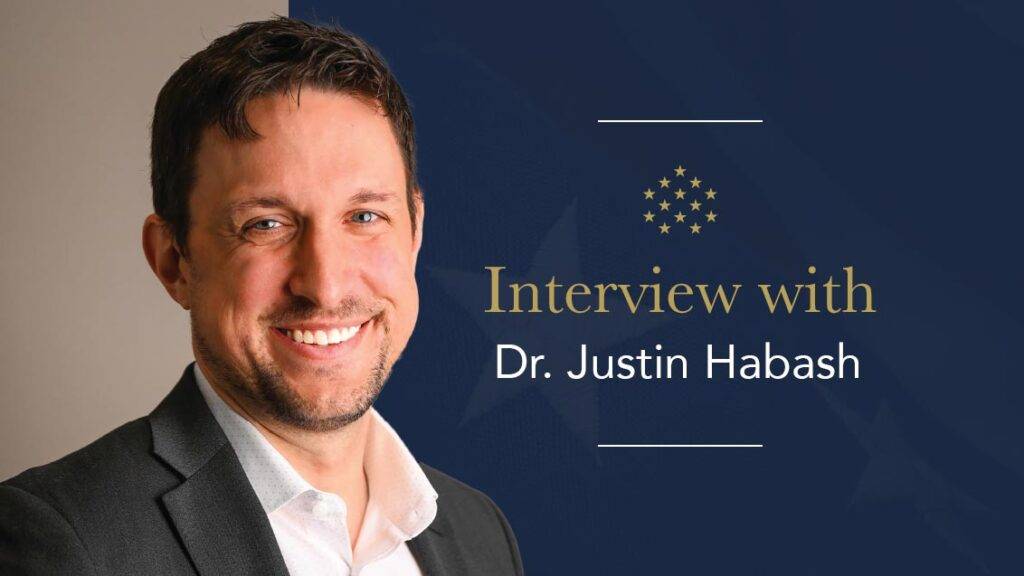Dr. Justin Habash comes by his role as the education director of the National Medal of Honor Leadership & Education Center naturally. Afterall, he was an officer with the 101st Airborne Division and now he devotes his professional life to education at one of the nation’s most prestigious universities.
Dr. Habash currently serves as the Assistant Dean for Teaching and Learning at the Carey Business School at Johns Hopkins University in Baltimore where he teaches leadership and ethics courses. As the NMOHLEC Education Director, Habash is responsible for developing and maintaining the educational curriculum that will be the focus of the NMOHLEC’s programs for college students and professional organizations interested in building values-based leadership skills. The curriculum will be built around the six core Medal of Honor values – integrity, courage, citizenship, commitment, sacrifice and patriotism.
- What Will the New Leadership Curriculum at the National Medal of Honor Leadership & Education Center Look Like?
I like to talk about our curriculum in terms of three ways we can create value in the leadership space: starting new conversations on leadership and values, enhancing existing conversations, and extending values-related learning experiences. We’ll create learning opportunities by offering in-person seminars and online classes that bring learners together with experts around critical ideas and topics in leadership.
There are lots of courses and learning materials dedicated to leadership already taking place at institutions of learning all across the country. Very often, however, character and values do not feature as prominently in these ethical leadership discussions. We want to create values-based leadership learning resources that can be used to enhance or augment some of those courses or programs that already exist.
Overall, the curriculum will be highly interactive, that is, we’re always going to attempt to put the learner in the decision-making seat. The curriculum will be world class, developed by leading experts, and it will be accessible, delivered in a variety of formats and locations.
- When and How Will this Program Launch?
We are launching with a series of short leadership seminars, where a panel of Medal of Honor recipients and outstanding leaders will answer questions and share experiences from their own leadership journeys. Each of our seminars will feature panels of leaders who will speak to the challenges and opportunities of values-based leadership based on their own extensive experience. Each event will be themed a little differently, sometimes focused on particular values or sectors like healthcare.
- What is the Need for a Curriculum Like This?
The Congressional Medal of Honor Society has an outstanding program called the Character Development Program that is geared toward the K-12 population. Of course, we all know that leadership is a lifelong learning journey and character development is no different. So, one of the primary needs is extending the learning opportunities related to MOH values to adult learners from all walks of life. We also want to provide greater access to leadership resources to learners who might not otherwise have the opportunity to learn about leadership from our Medal of Honor recipients or leadership experts. There is a need for inspiration, and we want to expand the impact our recipients and their stories have on people and communities nationwide.
Our programming will also help existing leaders in organizations who are challenged with building a values-based culture in their organization. Values are a critical part of any significant decision-making process, and they are especially important in dispersed organizations where junior leaders and staff are expected to make relatively autonomous decisions that have major impact on clients, employees, suppliers, and other stakeholders. The Center’s curriculum aims to leverage the strengths of the Medal of Honor values by translating them into ways that can benefit professional growth for individual leaders as well as the bottom line of execution and operational excellence for the organization.
- Values Mean a lot of Different Things to Different People. How will this Values-Based Curriculum Stand Out from other Leadership Programs?
The six core values of the Medal of Honor – courage, integrity, commitment, sacrifice, citizenship, and patriotism –represent ideals of character that we should all aspire to. And while many of the MOH recipients might not be entirely comfortable being called heroes, that’s precisely what they are in my view.
Just like when the heroes in our favorite stories sacrifice themselves for something greater, we recognize the inherent nobility in that act, in the value of sacrifice. We understand courage and integrity in the same kind of inherent way; these are really human values. So having the Medal of Honor values, and the example the recipients set for all of us, as the cornerstone of this curriculum puts it on much firmer, more universal foundations than many leadership programs.
I do also want to say that implementing this kind of curriculum isn’t without its challenges. Many people see a distance between themselves and those ideal values. They might hear some of the recipients’ stories and think, “I could never do something like that.” But we shouldn’t shy away from hard things.
The recipients themselves serve as moral exemplars by showing us what’s possible, since they’re real people who have demonstrated these values in the most daunting of circumstances. But each of us never really knows when we might be called upon to demonstrate the kind of courage or integrity or commitment that may make a profound difference. It may not be in combat, but there are certainly critical moments in all of our lives where being able to live these values might make all the difference. This curriculum aims to help learners prepare to meet their own moments by putting them in interactive scenarios and situations that ask them to exercise these values in the process of making tough decisions.
- What Did You Learn About These Values When You Were Jumping Out of Airplanes?
I think I’ve learned more about courage now at 42 raising children than when I was 25 jumping out of airplanes! I saw a lot of examples of courage, commitment, and sacrifice during my time in the military, but it wasn’t until I studied philosophy in more depth after I returned from war that I really tried to understand what a virtue like courage really was.
The Greek philosopher Aristotle argues that courage is a mean between the extremes of cowardice and recklessness. It’s not an absence of fear but rather the mark of someone who fears appropriate things and is able to face them and act courageously anyway. More importantly when it comes to building character, our capacity to act courageously is really developed through habit, through practice. And you don’t need to go to war to make a habit of acting courageously. We can all become more courageous with the right habits, practicing them, for example, by speaking up in situations where we might otherwise be afraid to share our ideas or defending a co-worker when there’s a real risk to us in doing so. Certainly, raising small children is a daily test of courage!
And that’s part of where our leadership program comes in: bringing these values front and center in leadership discussions so we can reflect on how to continuously build our character in positive ways and learning from those like our Medal of Honor recipients who represent the best of values-based leadership.
- How do you envision this program will look five years from now?
I envision the Center offering a broad range of programs, courses, materials, and learning experiences to adult learners at all different stages of their leadership journey.
At the broadest level, we want the program to be applicable to a wide range of professional sectors and delivered in a variety of ways that makes it accessible to in-person and online audiences. As one example, we’ll have online masterclasses on leadership and values that will incorporate recipient stories into leadership lessons and interactive decision-making scenarios.
Five years from now, we will also be offering a number of courses, fellowships, and leadership seminars through partnerships with different higher education institutions all across the country. I also expect we will have a vibrant corporate training program where we partner with interested organizations to create customizable training solutions that help them build values-based organizational cultures where exceptional leaders can thrive.

